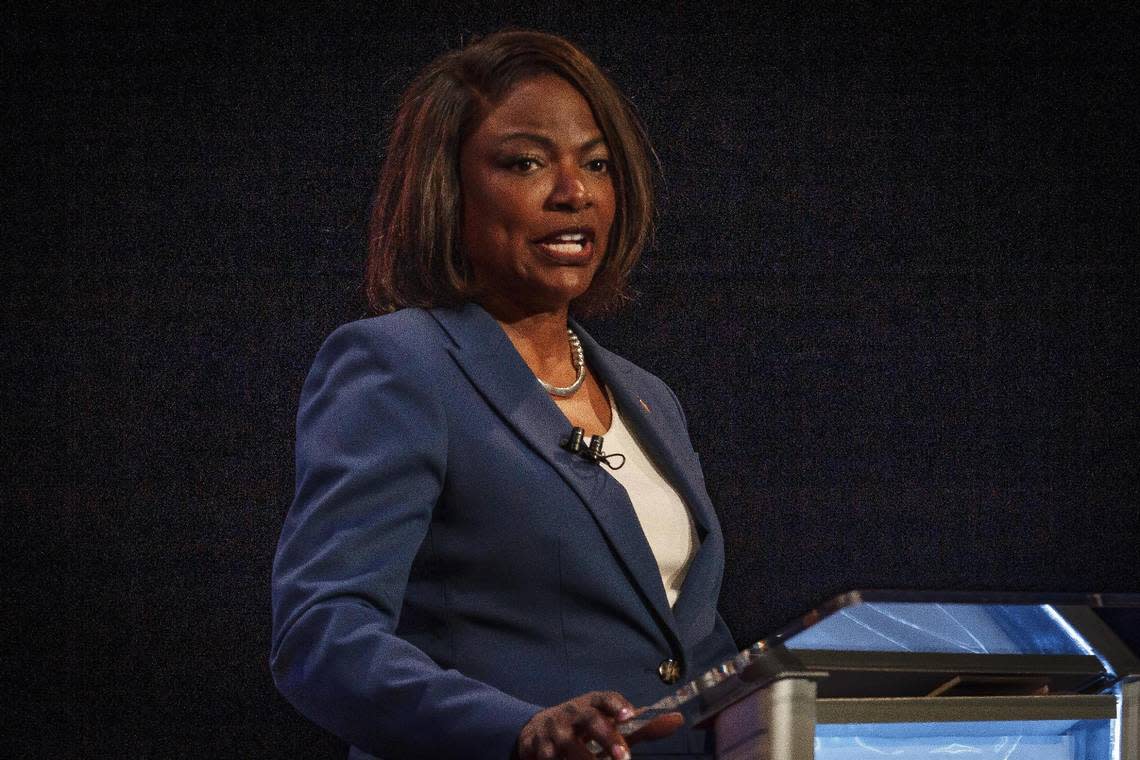
U.S. Rep. Val Demings said Thursday she does not support military intervention in Haiti amid one of the country’s worst health and security crises in decades, as Haitian officials and U.N. leaders call for the deployment of a multinational force to combat gangs in the Caribbean nation.
When asked during a meeting with members of the Miami Herald Editorial Board if she believed U.S. involvement in Haiti should “include troops in some form,” Demings, who is running for U.S. Senate, replied that was “not the answer.”
“Even multilaterally?” Miami Herald Editorial Board editor Nancy Ancrum asked.
“I do not support sending troops into Haiti at this time,” Demings, a former police chief, said Thursday. “As a crisis negotiator, we always tried diplomacy first. And that’s what we need to do, working through the State Department.”
Demings, who co-chairs the Haiti Caucus in the U.S. House, said she supported replacing the U.S. special envoy to Haiti after the last person assigned to the post — Ambassador Daniel Foote — resigned in protest amid the Biden administration’s policy towards Haiti and deportations of Haitian migrants. Senior State Department leaders told McClatchy that he resigned in September of 2021 after unsuccessfully advocating to send U.S. troops to the country.
“We sent a letter to the President, and to the State Department, asking that they immediately assign an envoy who can bring order, because the gangs are pretty much running the place. And so we’ve got to have someone to take leadership there,” Demings said. She added that during her conversations with Haitian Americans in Florida, many voters have stressed they don’t want the U.S. to take hold of the Haitian government, but rather help create conditions for a functioning system.
As the situation in Haiti has worsened, the Biden administration drafted a United Nations Security Council resolution that encouraged the “immediate deployment of a multinational rapid action force” to Haiti to address the crises, according to a copy of the resolution obtained by McClatchy and the Miami Herald. The U.S. ambassador to the United Nations told the council that Washington would support another foreign partner leading the effort.
Both the Haitian government and the U.N. secretary general have called for a multinational rapid reaction force to deploy to Haiti to push back against gangs that have blockaded the country’s main fuel terminals and cut off its critical roadways. The lack of fuel and potable water is fueling a cholera outbreak in the country, alarming the international community.
On Cuba and socialism attacks
During the hour-long endorsement interview, Demings — days after facing off against opponent Republican U.S. Sen. Marco Rubio in their first and only televised debate — discussed both domestic and foreign policy issues impacting voters, including inflation, abortion, climate change and immigration.
Asked about U.S. policy towards Cuba, she said that she supported the economic embargo on the island and said she does not think the U.S. should “encourage or downplay or try to make deals with a person that terrorizes his own people.”
“We should find ways to support Cubans through access to the internet, to make sure that they are able to receive support from family members. But do nothing to invest into a regime of a person who terrorizes his own people,” Demings said.
Demings, who said she has done most of her campaigning in South Florida, said that Rubio’s accusations that she is a socialist — a label that Florida Democrats have struggled to beat in past election cycles — are “ridiculous,” leaning on her law enforcement record as proof.
“When I talk to people in South Florida, they say that they’ve never seen a socialist police chief. And they say, ‘we’ve never seen a socialist who spent 27 years in law enforcement,’” Demings said. “I go back to my question [to Rubio]: how gullible do you think the voters are?”
McClatchyDC Senior National Security and White House Correspondent Michael Wilner contributed to this report.




